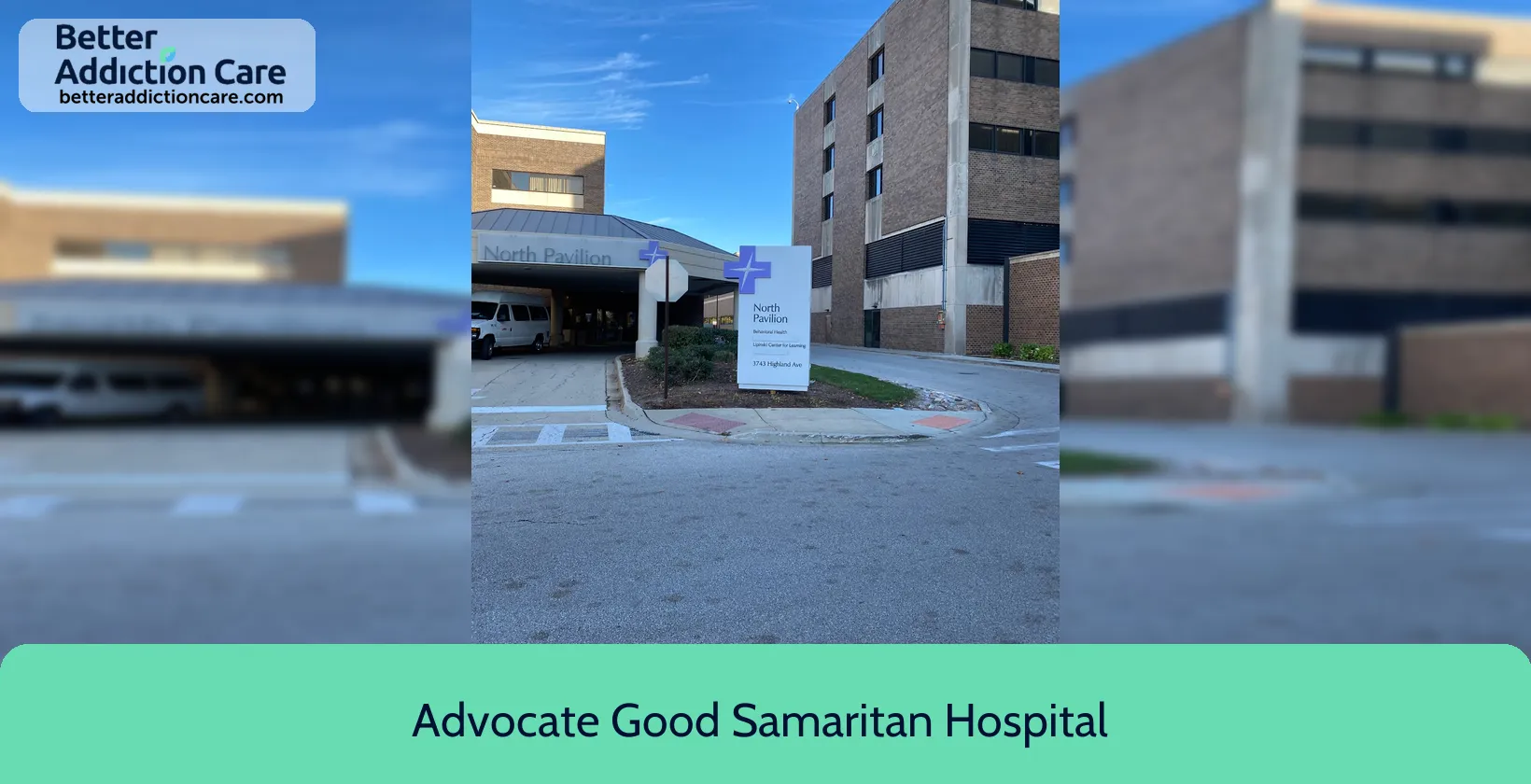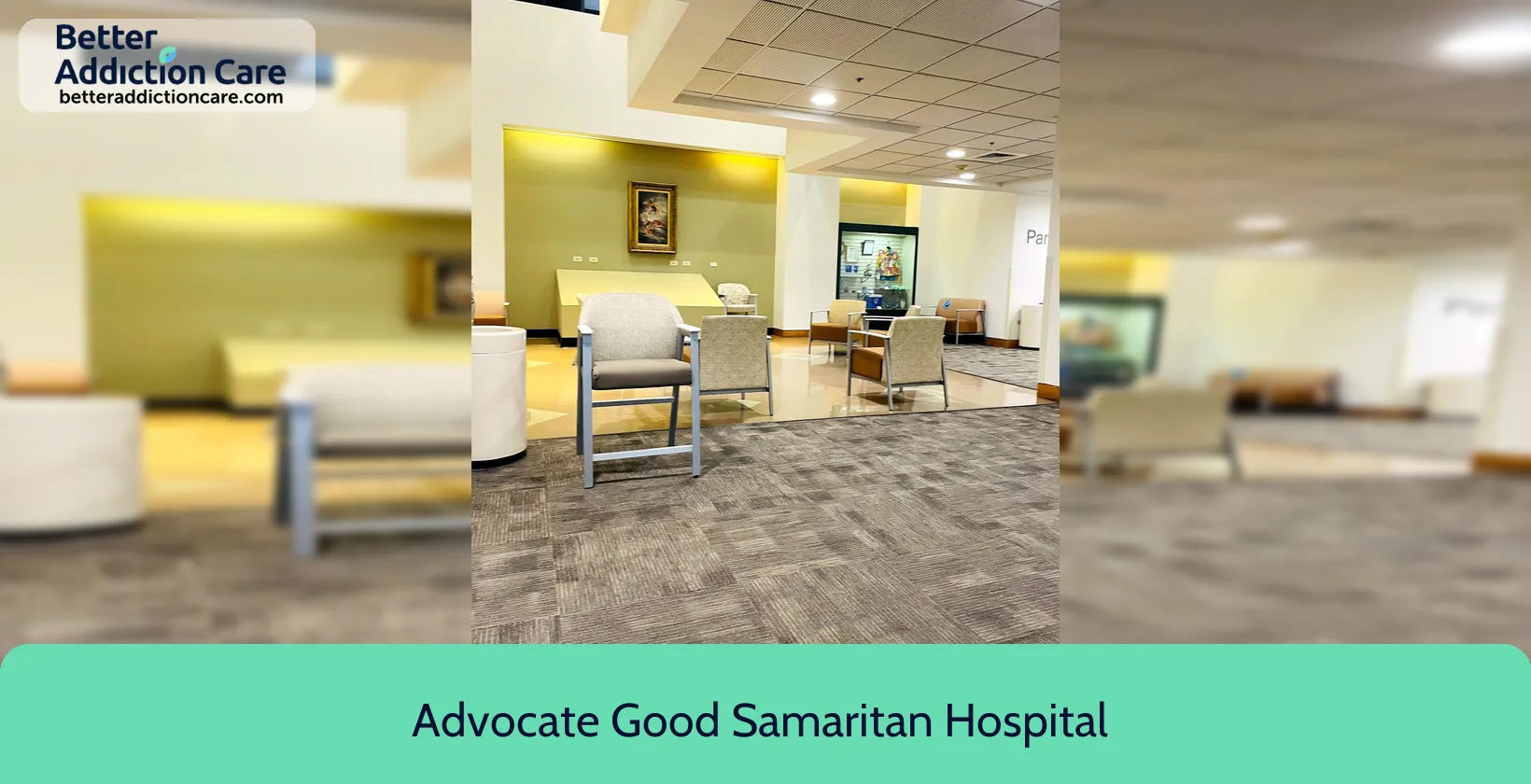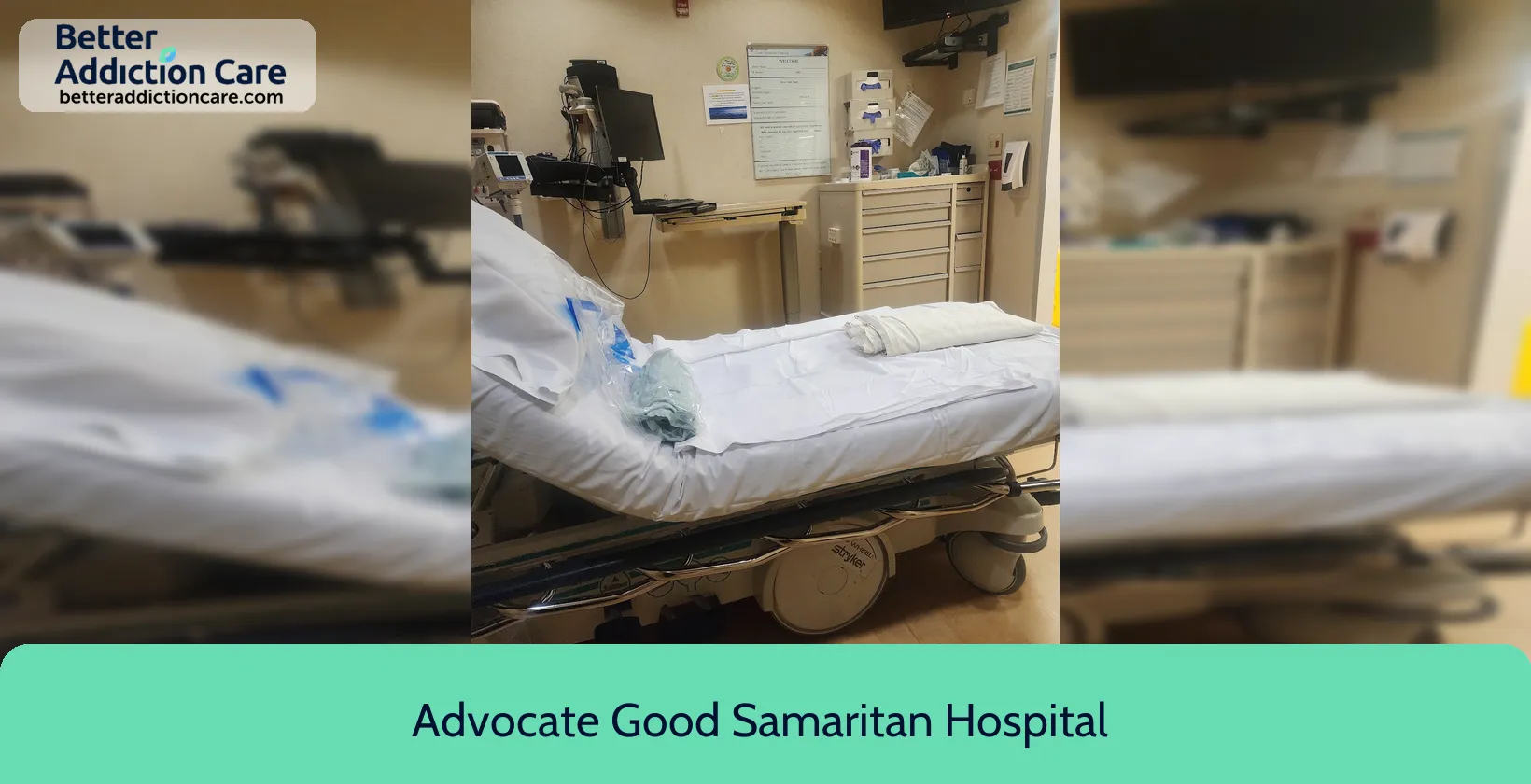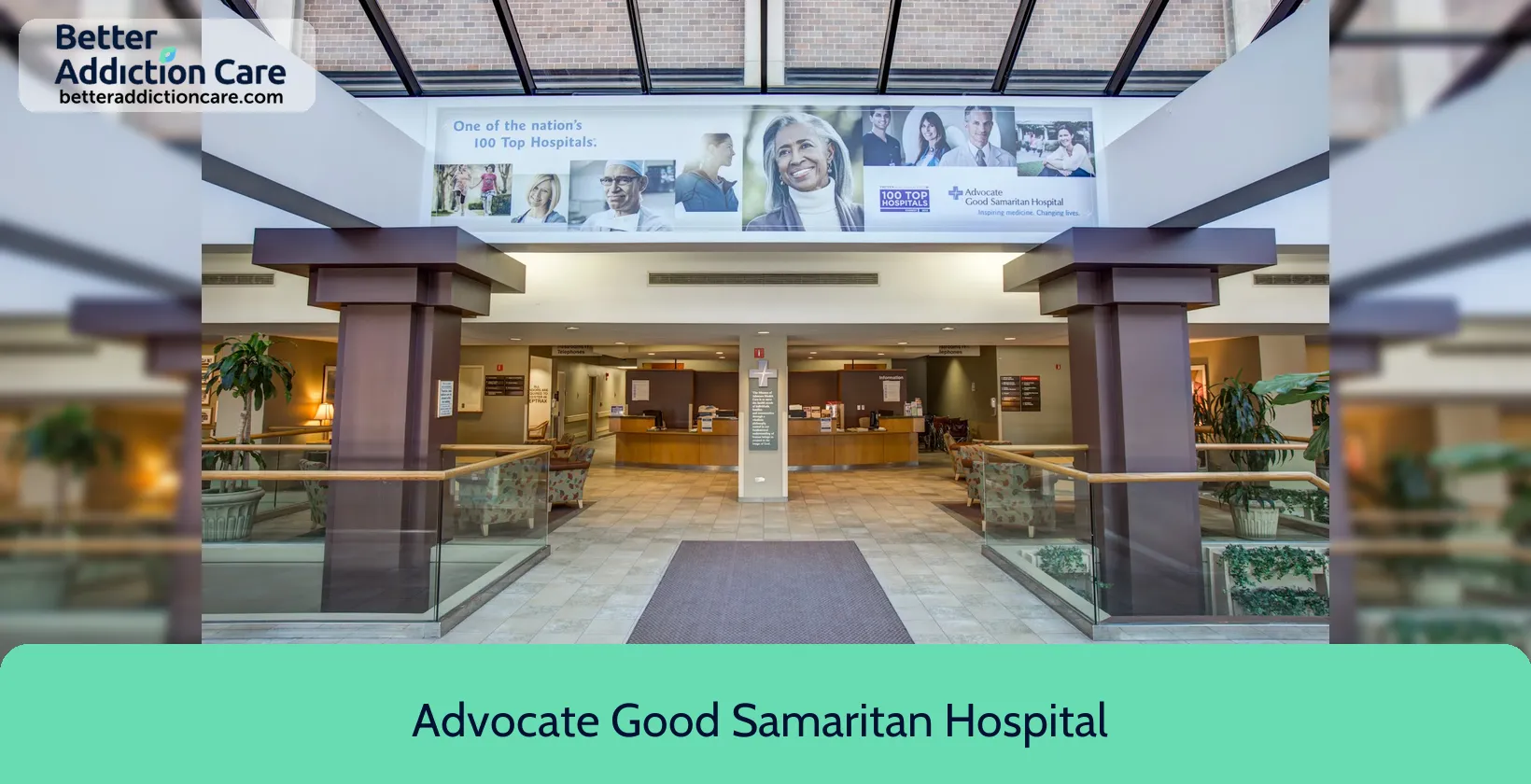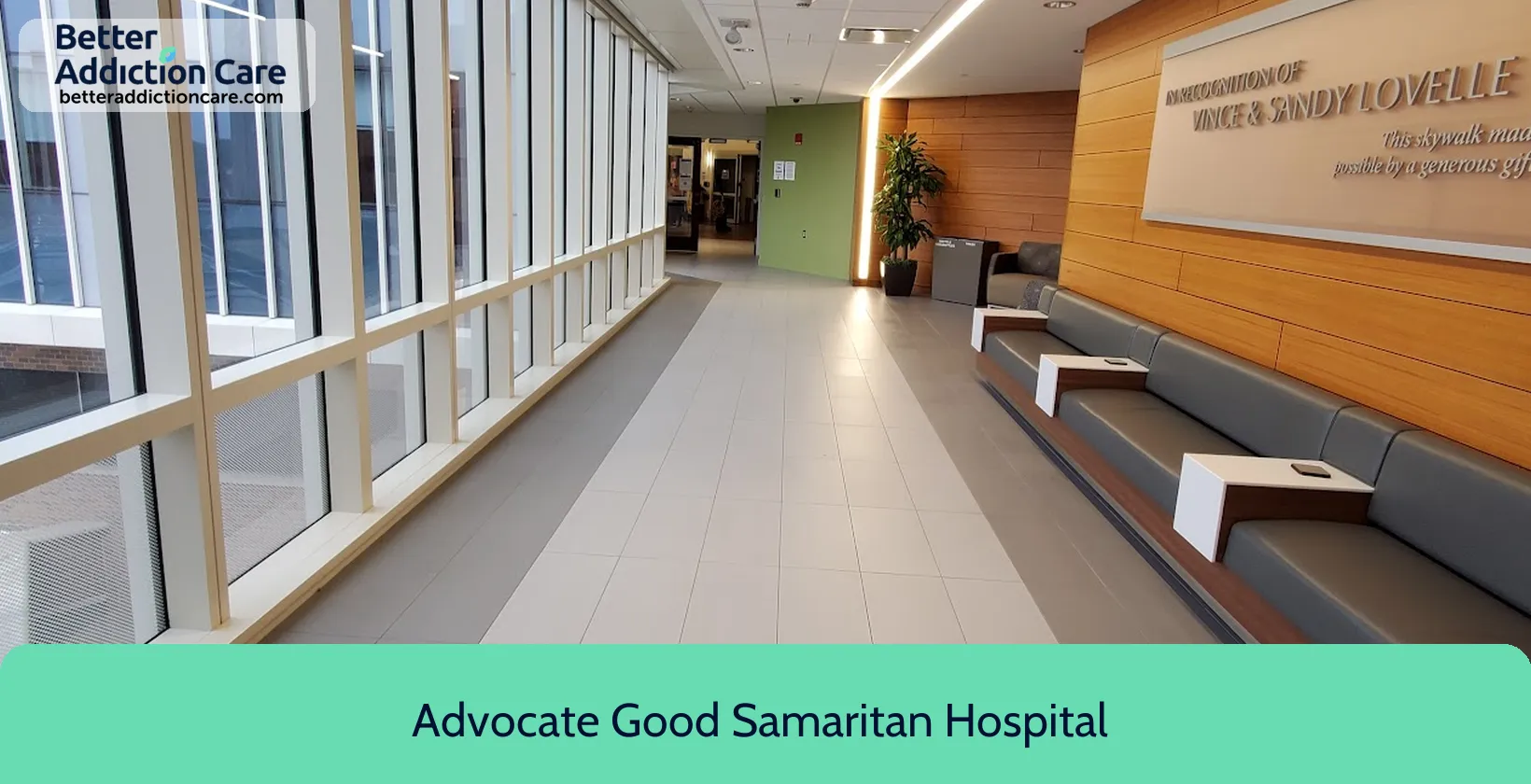Advocate Good Samaritan Hospital - Center for Mental Health
Overview
In Downers Grove, Illinois, Advocate Good Samaritan Hospital offers a wide range of mental health services to people of all ages, including kids, teens, and adults. In addition to focusing on physical health, the facility provides specialized care in the areas of mental health and drug abuse treatment. It makes sure that people of all sexual orientations and gender identities get care that is sensitive and welcoming, but it doesn't market gender-specific or faith-based programs.
The hospital offers many types of treatment, such as an Inpatient Program to help people get stable, a Partial Hospitalization Program to help people move on from inpatient care, and outpatient therapy for individuals, couples, and families. One more thing they have is an Intensive Outpatient Program for dealing with serious mental health issues and addiction. Cognitive behavioral therapy (CBT), medication control, transcranial magnetic stimulation (TMS) therapy, and trauma therapy are all types of treatment. One unique thing about the hospital is that it uses recovery advocates, who are people who have personal or family experience with recovering from mental illness and can give extra support. The Joint Commission has given Advocate Good Samaritan Hospital its seal of approval, which shows that it is dedicated to providing excellent care.
Advocate Good Samaritan Hospital - Center for Mental Health at a Glance
Payment Options
- Cash or self-payment
- Medicaid
- Medicare
- State-financed health insurance plan other than Medicaid
- Private health insurance
Assessments
- Screening for tobacco use
- Comprehensive mental health assessment
- Comprehensive substance use assessment
Age Groups
- Seniors or older adults
- Young adults
- Adults
- Seniors
Ancillary Services
- Case management service
- Chronic disease/illness management
- Court-ordered outpatient treatment
- Diet and exercise counseling
- Family psychoeducation
Highlights About Advocate Good Samaritan Hospital - Center for Mental Health
6.85/10
With an overall rating of 6.85/10, this facility has following balanced range of services. Alcohol Rehabilitation: 8.00/10, Drug Rehab and Detox: 6.00/10, Insurance and Payments: 6.53/10, Treatment Options: 6.85/10.-
Alcohol Rehabilitation 8.00
-
Treatment Options 6.85
-
Insurance and Payments 6.53
-
Drug Rehab and Detox 6.00
Accreditations
The Joint Commission:

The Joint Commission accreditation signifies that a facility has met rigorous standards of excellence in patient care, treatment, and safety. It assures individuals and healthcare professionals that the accredited facility provides high-quality, evidence-based care for addiction and mental health issues, fostering trust and confidence in their services.
Treatment At Advocate Good Samaritan Hospital - Center for Mental Health
Treatment Conditions
- Mental health treatment
- Alcoholism
- Substance use treatment
- Co-occurring Disorders
Care Levels
- Hospital inpatient/24-hour hospital inpatient
- Partial Hospitalization Program
- Outpatient
Treatment Modalities
- Couples/family therapy
- Group counseling
- Cognitive behavioral therapy
- Dialectical behavior therapy
- Integrated Mental and Substance Use Disorder treatment
Ancillary Services
Languages
- Sign language services for the deaf and hard of hearing
- English
Additional Services
- Pharmacotherapies administered during treatment
- Mentoring/peer support
- Metabolic syndrome monitoring
Special Programs
- Clients who have experienced trauma
- Persons 18 and older with serious mental illness (SMI)
Get Help Now
Common Questions About Advocate Good Samaritan Hospital - Center for Mental Health
Contact Information
Other Facilities in Downers Grove

7.33
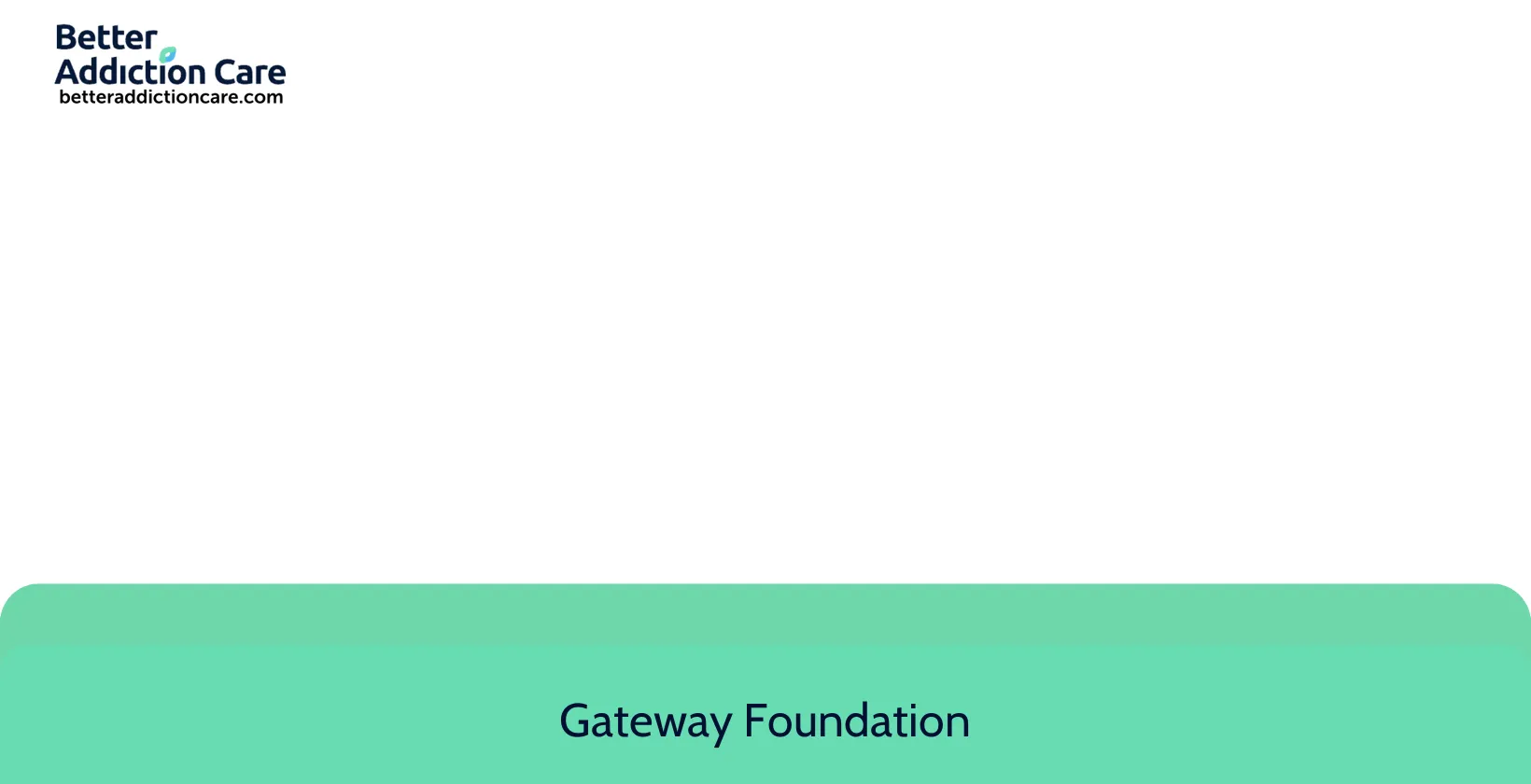
6.65
DISCLAIMER: The facility name, logo and brand are the property and registered trademarks of Gateway Foundation, and are being used for identification and informational purposes only. Use of these names, logos and brands shall not imply endorsement. BetterAddictionCare.com is not affiliated with or sponsored by Gateway Foundation.
